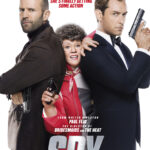Media Control in Fahrenheit 451: How TV and Radio Serve as Entertainment During Montag's Pursuit

The role of media in Fahrenheit 451’s dystopian society
In Ray Bradbury’s classic dystopian novel” Fahrenheit 451,” television and radio transcend their roles as mere entertainment devices to become powerful instruments of social control and manipulation. During the climactic pursuit of protagonist guy Montag, these media forms take center stage in a chilling demonstration of how entertainment can serve as both distraction and weapon.
The society portray in Fahrenheit 451 has developed an unhealthy obsession with media consumption. Citizens spend their days immerse in interactive television programs broadcast on wall sized screens, while portable radio devices ca” ” seashell” pump constant audio forthwith into their ears. This media saturation serve a dual purpose: it keeps the population entertain while simultaneously prevent independent thought.
Television as entertainment and surveillance
Television in Bradbury’s dystopia bear little resemblance to passive viewing experiences. Rather, it creates an immersive, participatory illusion that blur the line between viewer and content. Th” parlor walls” find in most homes function as massive television screens that envelop residents in sensory experiences design to feel interactive.
When Montag become a fugitive, the government weaponize this entertainment system in a remarkable display of control. The authorities recognize that the pursuit of Montag present a unique opportunity: they can transform a potentially destabilizing manhunt into rivet entertainment that simultaneously reinforce state power.
The pursuit become a live broadcast spectacle, with helicopters and mechanical hounds track Montag through the city streets. Every citizen become an unwitting participant in this macabre entertainment event. The television broadcast serve multiple functions:
- It entertains the population with high stakes drama
- It demonstrates the consequences of rebellion
- It creates the illusion of public participation in law enforcement
- It allows authorities to control the narrative aroundMontagg’s crimes
The televise pursuit reach its climax when the authorities realize they can not capture the real Montag. Quite than admit failure, they stage a dramatic capture of an innocent scapegoat. The broadcast show this random citizen being caught and eliminate, satisfy the public’s desire for closure while maintain the government’s appearance of omnipotence.
The seashell radio: personal entertainment as isolation
While television serve as the primary medium for mass entertainment during Montag’s pursuit, the” seashell radio ” epresent a more intimate form of media control. These thimble sized radio devices fit forthwith in the ear, provide constant audio stimulation that far isolate individuals from meaningful human interaction.
During Montag’s escape, the seashell radios serve as a network of surveillance and propaganda. Government announcements interrupt regular programming to provide updates on the manhunt, instruct citizens to watch for the fugitive. These broadcasts create a sense of collective vigilance while ensure that every citizen receive identical information about the pursuit.
The radio broadcast during the manhunt demonstrate several key aspects of media control:
- They create the illusion of participation in civic duty
- They transform a police action into an entertainment event
- They prevent citizens from form independent opinions about Montag
- They maintain constant audio stimulation that discourage critical thinking
Bradbury’s portrayal of the seashell radio prove spooky prescient, anticipate modern personal audio devices that allow for constant media consumption. The isolation create by these devices serve the government’s goal of prevent meaningful human connections that might foster dissent.
The theatrical nature of the pursuit
Perchance the virtually disturbing aspect of media use during Montag’s pursuit is how exhaustively it transforms a serious manhunt into theatrical entertainment. Fire chiefBeattyyothersr explain tMontagag that their society haprioritizedze happiness through entertainment over the messiness of intellectual engagement. The pursuit demonstrate this philosophy in action.
The authorities orchestrate the manhunt with entertainment value as a primary consideration. Helicopters swoop dramatically through the city. The mechanical hound — already a terrifying symbol of technological oppression — is present as an exciting character in the unfold drama. Camera angles and commentary frame the pursuit as a thrilling chase kinda than the persecution of a man whose crime was read books.
This theatricality reach its peak when the authorities realize they can not capture Montag himself. Quite than acknowledge failure, they merely find a random pedestrian to serve as a stand in. The broadcast show this innocent person being capture and eliminate by the mechanical hound, provide viewers with the satisfying conclusion they expect from entertainment.
The public accept this fabricate ending without question, demonstrate how exhaustively entertainment has replaced critical thinking. The televise” resolution” provide closure to the narrative while reinforce several messages beneficial to the state:
- Rebellion is invariably punished
- The authorities are infallible
- Justice is swift and absolute
- The system work absolutely
Media as a tool for mass manipulation
Throughout Montag’s pursuit, television and radio function as sophisticated tools for mass manipulation. The government doesn’t simply use these media to entertain — it uses entertainment as a vehicle for control public perception and behavior.
Several manipulation techniques become evident during the televise manhunt:

Source: depop.com
Distraction through spectacle
The pursuit create a spectacle hence compelling that citizens can not look off. This distraction serve two purposes: it prevents people from question whyMontagg rebel in the first place, and itoccupiesy their attention during a potentially destabilizing event.
Creation of artificial community
By broadcast the pursuit to everyone simultaneously, the media create a sense of share experience. Citizens feel connected to each other through this common entertainment, evening while remain physically and emotionally isolated in their homes.
Reinforcement of social norms
The public nature of Montag’s punishment serve as a warning to others who might consider similar rebellions. The entertainment value doesn’t diminish this message — it amplify it by ensure maximum viewership.
Narrative control
By control how the pursuit is present, authorities shape public understanding of Montag’s crimes. He is portrayed not as someone seek knowledge but as a dangerous deviant threaten social harmony.

Source: liveonlineradio.net
The false conclusion: entertainment over truth
The about revealing moment in the media coverage of Montag’s pursuit come when authorities fail to capture him. Quite than admit this failure, they but create a fictional conclusion to the entertainment narrative. They capture an innocent person, identify him as Montag, and execute him on live television.
This substitution reveal the government’s understanding that the appearance of success matter more than actual success. The public has been condition to value satisfy entertainment over factual reality. Equally retentive as the broadcast provide dramatic closure, viewers are content to accept whatever they’re show.
This fabricates end serve asBradburyy’s stark warning about entertainment that replace reality. When a society value entertainment above truth, itbecomese vulnerable to manipulation through media. The citizens watch the false capture ne’er question what they’rseenee because the narrative fulfill their expectations of how entertainment should conclude.
Escape from the media landscape
Montag’s successful escape from the city represent more than physical freedom — it symbolizes his liberation from the omnipresent media landscape. As hejoinsn a community of book memorizers outside the city, henterser a space where human interaction hreplacedace media consumption.
This community offer a stark contrast to the media saturate city:
- Conversations replace broadcasts
- Books (memorized )replace television programs
- Critical thinking replace passive consumption
- Genuine human connection replace artificial community
The novel conclude with the bombing of the city — a cataclysmic event that destroy the infrastructure of media control. This destruction, while tragic, create the possibility for rebuild a society less dependent on entertainment as control.
Modern parallels to Bradbury’s vision
Bradbury’s portrayal of television and radio during Montag’s pursuit contain unsettling parallels to contemporary media landscapes. Modern audiences might recognize several elements that have evolved from fiction into reality:
- Reality television that transform real life situations into entertainment
- 24 hour news coverage that blur the line between information and spectacle
- Personal audio devices that create isolation within public spaces
- Media events that create temporary communities of viewers
- The use of entertainment formats to deliver political messages
These parallels make Bradbury’s warn more relevant than always. When entertainment become the primary lens through which we view serious events, we risk lose the ability to distinguish between spectacle and substance.
The enduring message about media and control
The portrayal of television and radio during Montag’s pursuit deliver one of Fahrenheit 451’s virtually powerful messages: entertainment can function as a form of control. By transform a manhunt into compelling viewing, the authorities ensure maximum public engagement while minimize critical response.
This transformation of serious events into entertainment serve multiple purposes:
- It distances viewers emotionally from the real human consequences
- It frames government actions as necessary and merely
- It creates a share narrative that reinforce social cohesion
- It occupies attention that might differently be direct toward question authority
Bradbury’s insight remain deeply relevant. When we consume serious events as entertainment, we risk become passive spectators instead than engage citizens. The televise pursuit of Montag demonstrate how easy entertainment can replace engagement, spectacle can replace substance, and fabrication can replace truth.
Conclusion: entertainment as both pleasure and prison
In Fahrenheit 451, television and radio during Montag’s pursuit exemplify how entertainment can simultaneously please and imprison a population. The citizens watch the manhunt experience genuine excitement and satisfaction, yet as these emotions bind them more tightly to a system that limit their freedom.
Bradbury’s masterful portrayal of media during this climactic sequence serve as a warning about the dangers of uncritical media consumption. When entertainment become the primary lens through which we view the world, we become vulnerable to manipulation through the very media that give us pleasure.
The pursuit of Montag, transform into rivet television and radio broadcasts, stand as one of literature’s virtually prescient warnings about media’s dual nature: its capacity to entertain us while simultaneously control what we think, what we value, and how we understand our world.






